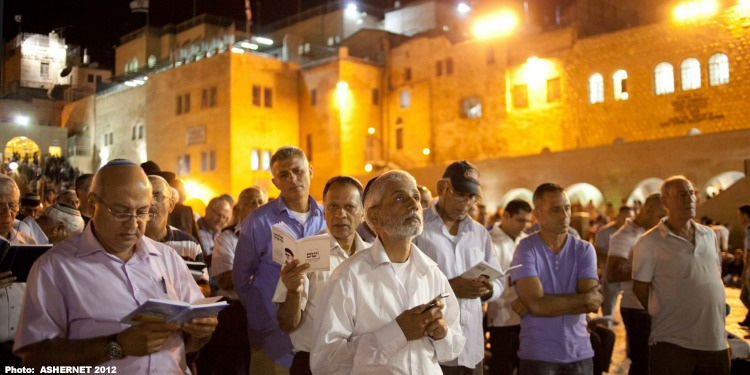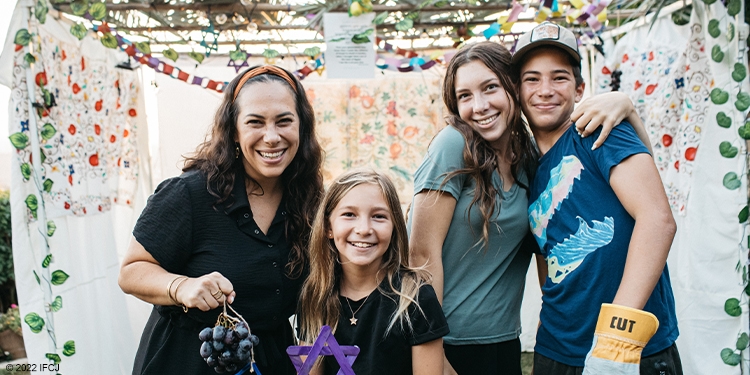How to Make Atonement
Yael Eckstein | September 28, 2020

“The priest who is anointed and ordained to succeed his father as high priest is to make atonement. He is to put on the sacred linen garments and make atonement for the Most Holy Place, for the tent of meeting and the altar, and for the priests and all the members of the community.” — Leviticus 16:32-33
Today, Jews around the world observe the holiest day on the Jewish calendar, Yom Kippur, the Day of Atonement, with a 25-hour fast, prayer, and reflection. Because this is a non-working holiday, this devotion was prepared in advance for you.
Every year on Yom Kippur, I join my community in synagogue for a full day of fasting and prayer. Yom Kippur, the Day of Atonement, is the holiest day on the Jewish calendar. On this day, it is customary for Jews to wear garments of pure white, as we trust God’s promise to cleanse us of all sin. Standing in a sea of white, reciting stirring and soulful prayers, is a feeling that is hard to describe. I am filled with awe for God while simultaneously feeling His immense love.
However, I am well aware that our service today is but a shadow of the service that once was. Leviticus chapter 16 is dedicated to the description of the service that was performed on Yom Kippur in order to gain atonement when the Holy Temple stood in Jerusalem. Today, we no longer have a high priest, nor do we participate in ritual sacrifices. So how is it possible to still make atonement?
It is easy to understand why repentance and prayer can help us make atonement for our sins, but why is charity singled out as one of the three components?
The answer is because when we give charity, we take the faith that is in our heart and in our mouths and make it real by putting it into action.
When we give charity, we demonstrate that we firmly believe that everything in the world belongs to God — including our money — and that we have a responsibility to use it according to His will. When we take from our hard-earned money and give it away, we also prove that we trust God to provide for all our needs even when we diminish what we have in order to help someone else. And when we extend our hand to others, we show God that we are truly committed to being kinder, more loving individuals.
When we give charity, we demonstrate to God that our prayers and repentance are sincere. Moreover, when we give to others, God sees that we act compassionately and mercifully toward others. In return, He treats us with compassion and mercy, forgiving our past misdeeds and showering us with new blessings.
Your turn:
Bless someone with a gift of charity today — and may God bless you tenfold!


